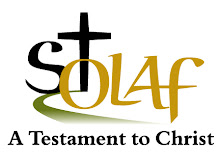We are still celebrating the Easter Season in the Catholic Church, so Happy Easter! Yes you read that correctly! Easter does not end when the Easter bunny heads back to his rabbit hutch to rest up until next year. We celebrate the Risen Lord from Easter Sunday until Pentecost, which falls on June 8 this year.
There are many different ways that various cultures celebrate this beautiful season of our Church year. One is to get some of the blessed water from the font in a small container or any fresh water will do and add some fragrant oil or an extract (vanilla, lemon, etc.) to it. Then sprinkle it or spray it on friends or family when they least expect it. Remember when you do this to say as the Hungarians do, “May you never wither!”
This is definitely part mischief but is part blessing as well. And for sure a tamer version of what happens in parts of Eastern Europe where whole buckets of water being dumped on people is popular. That means a whole town may end up wet at Eastertime! The custom dates back thousands of years to when people were first accepted into the faith. People were baptized by being dunked into rivers or ponds.1
Did you ever wonder why water pistols appear in stores at this time of the year? Well remember that ever since the Hebrews marched through the Red Sea water has been a symbol that deep down tells us to celebrate. Spring is the perfect time to do that the rain showers, cleans our landscapes and refreshes our rivers, lakes and yards. Water quenches are thirst. Rain can come in gentle showers or torrential downpours either way we need to remember the power water has not only to sustain life but to destroy as well.1
Maybe during the rest of the Easter Season you could get some of the blessed water from the font at church and have a small bowl setting in your home prayer space. Then each time you pass the space you and your family could make the sign of the cross just was you do when you enter and leave church.1
1-Copyright 1991, Liturgy Training Publications, written by Christine Kenney-Sheptus.



